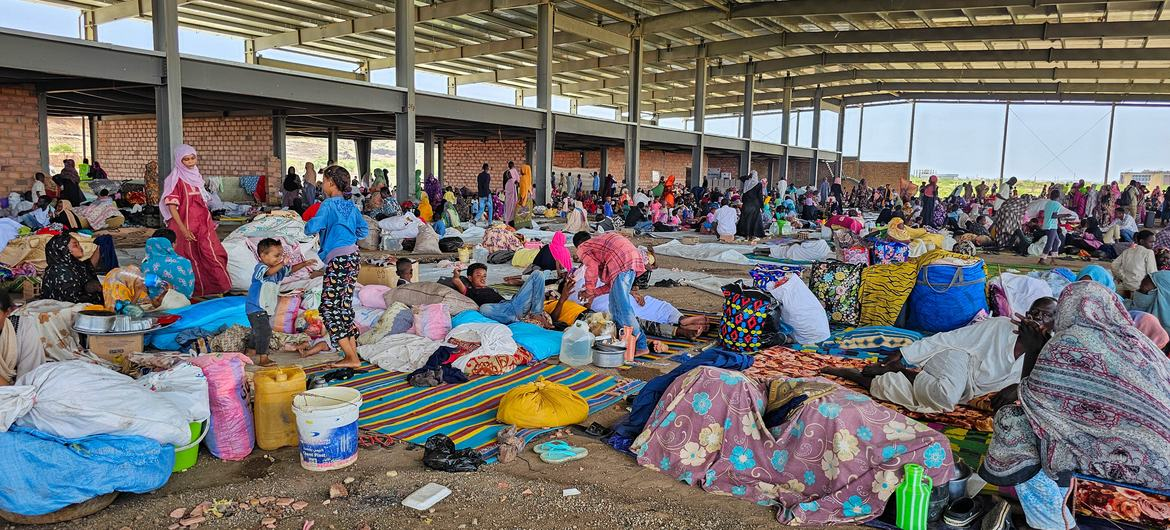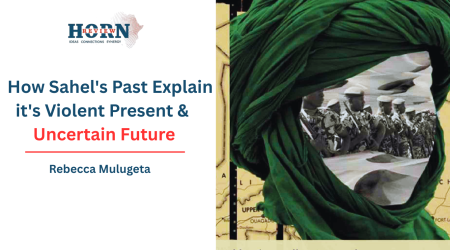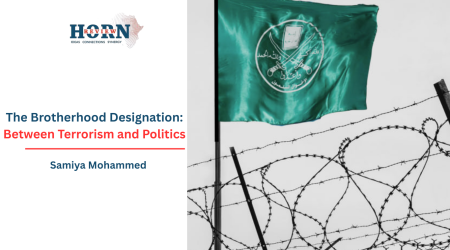
26
Aug
Sudan at the Edge: Can US Mediation Rescue a State in Collapse?
Sudan’s war extends beyond battlefields, affecting markets with soaring food prices, schools turned into shelters, and villages deserted by famine and shelling. For civilians, repeated ceasefire failures have eroded trust. The key question is whether US-led mediation can provide real relief and avert Sudan’s potential fragmentation. Washington’s role involves not only stopping the violence but also helping preserve Sudan as a cohesive state.
The United States has renewed its engagement in Sudan out of strategic interest. A state collapse would destabilize neighbors like South Sudan, reliant on Sudanese oil pipelines; Chad, already strained by refugee flows and militia incursions; and Egypt, which views Khartoum as vital to its own security.
These risks extend to the Red Sea, where about 12% of global seaborne trade and oil shipments pass through the Suez Canal and Bab el-Mandeb Strait. A fragmented Sudan could allow foreign powers to back rival factions in exchange for ports, gold, or bases, reshaping the balance of influence in one of the world’s most critical waterways. The competition already involves Russia, China, and Gulf states. Unlike Egypt, the UAE, and Saudi Arabia, each with direct entanglements in Sudan—the United States has fewer local commitments, giving it a veneer of neutrality. Yet this advantage is fragile. Without aligning Gulf partners, addressing Egyptian concerns, and working with African bodies such as IGAD and the African Union, Washington risks repeating the failures of earlier mediation attempts.
Despite renewed engagement, however, Washington faces structural barriers that make success uncertain. The first is fragmented legitimacy: neither the Sudanese Armed Forces (SAF) nor the Rapid Support Forces (RSF) command broad public trust. Both are widely viewed as predatory, exploiting the conflict for control and resources. By elevating them as primary negotiating partners, the United States risks reinforcing warlordism while sidelining the very civilian forces that drove Sudan’s 2019 revolution.
The second obstacle is external competition. Egypt, Saudi Arabia, and the United Arab Emirates continue to fuel the conflict with arms, financing, and political backing – even as they sponsor rival peace tracks. Egypt views the SAF as a buffer against instability on its southern border, tying its fortunes to General Burhan and resisting any arrangement that institutionalizes the RSF.
The UAE, by contrast, has cultivated strong ties with Hemedti’s RSF, leveraging access to Sudan’s lucrative gold trade; Emirati backing has given the RSF staying power but complicates any push for accountability or disarmament. Saudi Arabia balances between both factions, seeking stability on the Red Sea corridor while diluting joint mediation through its own initiatives. Unless Washington can harmonize these competing agendas, its mediation will remain vulnerable to parallel diplomacy that entrenches rather than resolves Sudan’s war.
A third challenge is great-power competition. Russia has established links with the RSF through gold exports, financing its war effort while also engaging the SAF in pursuit of strategic gains like a potential naval foothold in Port Sudan. China, meanwhile, prioritizes Sudan’s stability as part of its Belt and Road network, favoring elite deals to protect infrastructure and energy interests. Both powers can act as spoilers – Russia by deepening conflict economies, China by privileging stability over inclusivity – narrowing Washington’s room for maneuver and raising the risk that mediation becomes another arena of great-power rivalry.
SAE, RSF, and the Struggle for Legitimacy
These external pressures converge on Sudan’s central dilemma: the zero-sum rivalry between the SAF and the RSF. Neither faction can dominate outright, yet both equate compromise with defeat.
The SAF, led by General Abdel Fattah al-Burhan, has secured territorial gains along the Nile corridor and in eastern Sudan, but struggles to reclaim Darfur or stabilize a collapsing economy. It insists that no settlement should legitimize the RSF as a parallel force, seeing such recognition as a threat to the state itself.
The RSF, under Mohamed Hamdan “Hemedti” Dagalo, controls significant territories, including gold trade routes in Darfur that provide economic leverage but are clouded by allegations of atrocities. For Hemedti, US-led mediation offers a pathway to political legitimacy but carries the risk of accountability for war crimes. Both factions pursue military offensives to assert indispensability, reinforcing a dynamic where one side seeks dominance without reform and the other survival without accountability. This explains the persistent collapse of elite-driven peace efforts.
The 2019 revolution was also not just the achievement of generals but of civilians: resistance committees, women’s coalitions, youth movements, and professional associations. These groups toppled Omar al-Bashir’s regime through sustained mobilization, demanding democracy and social justice. Despite the war, they remain resilient. Emergency Response Rooms, an evolution of resistance committees, provide critical humanitarian support in cities like Khartoum and Port Sudan, as well as in refugee camps in Chad. Operating under constant threat from both SAF and RSF, they remain lifelines for Sudanese communities.
Yet mediation efforts often marginalize these civilian groups, privileging armed factions instead. This is a profound miscalculation. Civil society provides the only coherent vision for peace rooted in law, accountability, and non-violence. To amplify their influence, civilians can build cross-regional networks, advance unified proposals on humanitarian access and governance, and partner with neutral actors like IGAD and the AU.
The United States has a pivotal role in correcting this imbalance. By guaranteeing space for civilian participation – through inclusion in talks, support for their proposals, and protection against reprisals – Washington can enhance the credibility of mediation and avoid yet another warlord-centered settlement destined to collapse.
Preventing Fragmentation: A Narrow Path Forward
Sudan now risks sliding into a Libya-style fragmentation, with multiple sovereignties emerging across its territory. In Darfur, the RSF’s dominance already functions as a proto-state. Eastern Sudan is governed by tribal and patronage networks, while central Sudan remains a contested battleground. Such a pattern would institutionalize conflict economies, invite foreign patrons to trade resources for influence, and erase Sudan’s cohesion.
Preventing this outcome requires peace agreements that embed federalism, equitable revenue sharing, regional autonomy, and robust civilian oversight – principles that address local grievances and reduce reliance on armed elites. Civilians must be at the core of this process, not treated as token participants.
The United States cannot dictate Sudan’s future, but it can sharpen mediation by conditioning participation on humanitarian compliance, restraining Gulf partners from competing mediation tracks, amplifying civilian representation, and empowering regional bodies like IGAD. Ultimately, Sudan’s survival will depend less on what generals concede to each other and more on whether the civilian forces who sustained the revolution are granted genuine political space. Only by centering legitimacy in this way can mediation prevent state collapse and preserve Sudan’s unity.
By Bezawit Eshetu, Researcher, Horn Review
References
- International Crisis Group (2025). Bolstering Efforts to End Sudan’s Civil War.
- Chatham House (2024). The war in Sudan is intensifying. Coordinated pressure is needed to prevent the country’s fragmentation.
- U.S. Energy Information Administration (EIA) (2023). Red Sea chokepoints are critical for international oil and natural gas flows.
- United Nations (2024). Youth-led ‘emergency rooms’ shine rays of hope in war-torn Sudan.
- ISPI (2025). The Role of Gold in the Sudanese War.










